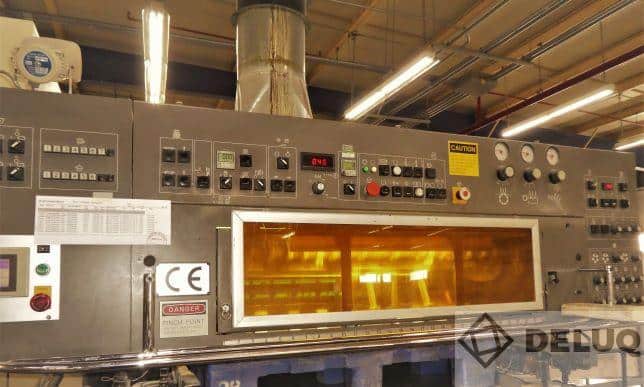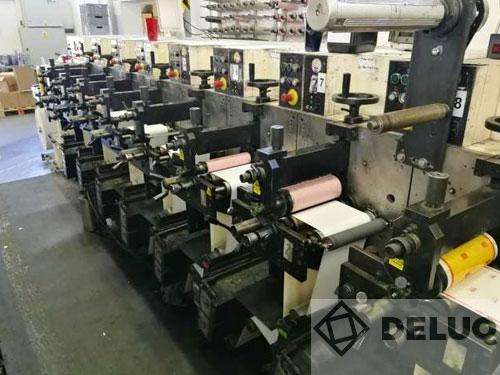Buying a used Offset Saves Money but Beware.
Global economy is really flourishing and demand for printed products is very high. Packaging is one of the fastest growing segments due to its varied customer based and multiple uses, even if ecommerce has increased there are physical goods being exchanged as an outcome.
Most smart and savvy entrepreneurs are upgrading their equipment now with used machinery instead of spending capital investment in a new one.
This is even more common in countries where it’s easier to maintain and run a used machinery due to inexpensive labor cost or wide availability of alternate supplies. There are many ways to be excited about buying a used printing press or a second-hand offset machine.
There are also many ways to get a bad experience by buying a machine that is not good, we provide you 13 things to check before you complete your next printing machinery purchase.
-
- Identify the best features for your needs, we see most customers come with a fixed brand in mind. This might be because they have operated this machine, heard great things from industry friends or simply based on the brand promise. You will need to identify what each newer technology machinery has in terms of benefits and focus on these in your new purchase.
- Understand your constraints with investment capacity, always aim for 75% of your expected outlay. A lot of things can go wrong in international imports or even domestic used machine sales, despite insurance coverage you might need to bail out any issues that happen. Maximize your investment but not to where it turns to being risky.
- Check the firm that is selling you the machinery, do a BBB and google review if possible. Another popular way is for consulting firms to change their names every few years to eliminate any bad feedback. Go with an agency that has been in operation for at least 15 years, like our consulting for offset machinery- Deluq is backed by 30+ years of experience.
- As you request references and credibility sources form your seller, call and ensure you follow through. This is important for any used machinery purchase as most users look up names and websites, or put a feeble attempt wanting to complete a sale. If the seller refuses or the contact does not call back, that is not a good sign.
- Discuss with the selling firm or the consulting agent what types of issues have come up and how they dealt with problems in the past. Push the envelope a bit and ask if they can provide guarantees for those. Even successful companies run into an occasional problem; by listening to their responses and appreciating their thinking you can know if that is the team that will get you the best deal, It is so important that a few years from the sale, you still have the comfort of dialing that person up, just this security is enough peace of mind.
- If your budget has the capacity, have your mechanics or electrician review/supervise the disassembly before shipment. If you cannot, secure a written guarantee that the machine is in good working order before it’s shipped. This is the age of social everything, try and live stream the packing or worst video record it for comfort and evidence.
- Ensure your shipping and banking services are water tight. When sellers entertain a request, they expect and will confirm your full capacity. Even if its FoB, they don’t want to deal with any issues hence do not leave your side unfinished before asking questions. After all it’s a trade, so ensure your promise is ready to be executed.
- Review all machinery with power and feed before purchasing it. Though not all companies use a reconditioning facility, those that do offer you a firsthand experience of the machinery’s specific working capabilities.
- Determine how long the equipment company has been at its current location, and whether it owns a warehouse. Both of these facts indicate a company’s stability, financial strength and its commitment to the industry.
- Examine the return policy. Most used printing machines cannot be returned but you can always discuss options to get better peace of mind.
- Find out how long the company has been with its current bank, and ask for a contact there. Being able to return a machine is great, but only if your money is returned to you.
- Review the warranty program. Reputable used equipment companies work with you to assure your satisfaction and future business. Look for a solid warranty program that ensures you will receive timely assistance if a machine should have mechanical or electrical issues once in full production.
- Ask if the company stocks its machines or brokers them. This lets you know if you are talking to a middleman or the main company in charge. Be aware – if you are dealing with a broker, your purchase price may be higher to cover the brokers’ commissions.


1 Comment
Tanveer · 19th August 2020 at 1:08 pm
i want parchace four color 28×40 heilderbarg offset machine